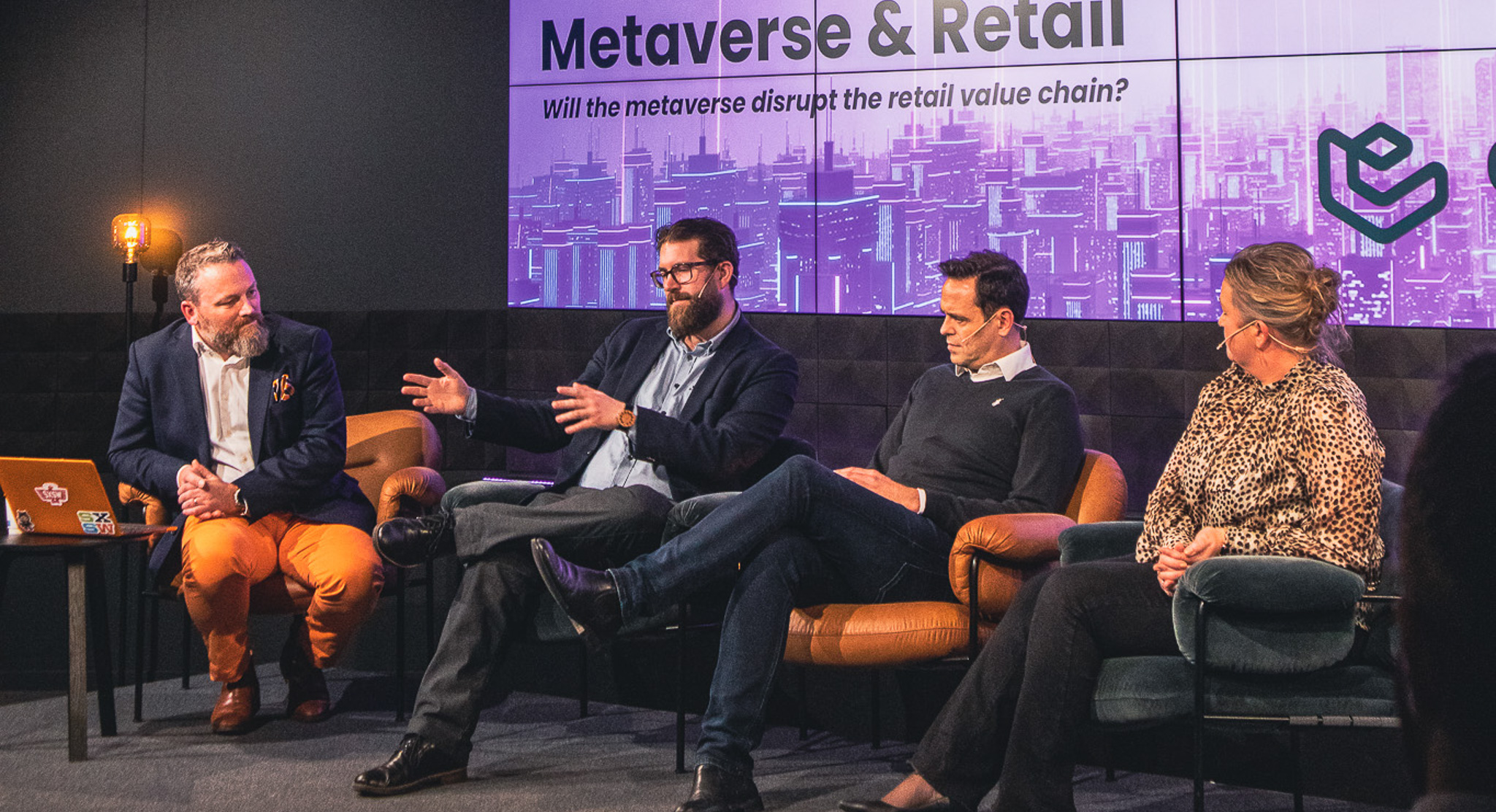Please contact you local service desk for reseting your credentials. //Epicenter team
Craving inspiration and new stories? Don’t worry, we’ve got you covered.

October 27th Epicenter Oslo co-hosted an event with Sopra Steria about the Metaverse in relation to the retail industry. The topic at hand was: will the Metaverse disrupt the retail value chain? And if so, how? We welcomed Sopra Steria’s very own experts on virtual reality, Erik Eskedal, Jelmer Verhoog and Scott Leaman, Meta Vertical Lead, Nina Hareide, and CEO of Wilfa, Morten Hoff to the stage to share their insights, thoughts and experiences.
We had a talk with Sopra Steria’s Agency Director, Marketing Services, Erik Eskedal to have a closer look at his insights and experiences, as well as where he thinks the Metaverse is taking us in terms of retail:
For many, the Metaverse is the future of the internet. And it is also for many a world where we live inside a parallel virtual world with VR goggles on. But the Metaverse is more than that. It is a world where we take the best from the physical and digital world and combine it with mixed reality where AR, and VR is placed on top of the internet we have today. We will have avatars that we travel around in a parallel universe with. It is forecasted to create a new digital economy. It has the potential to change the way the world and society operates.
From a commercial perspective, the metaverse will create new products, new business models and marketing and a way of delivering services to both business and consumers. In short, Metaverse will create new opportunities for us to collaborate and interact across the world with new tools and possibilities.

Erik Eskedal, Agency Director, Marketing Services, Sopra Steria
The Metaverse is still to come but we have for a long time seen some ideas in regards to where it is going. The gaming and entertainment industry has come far with creating their own virtual worlds and experiences. Meta, the company behind Facebook, is working on Horizon, their different solutions for both consumers and collaboration in the professional areas. Virtual worlds that is slowly being settled but we are still see real use of it.
Even though many companies are exploring the possibilities, we are still there where we need the users to enter it, but to do so we need to provide services and things for them to want to join. It has set a course and will most definitely affect how we develop services and experiences for the future in regards to creating a phygital world where mixed-reality will be part of that future.
The retail industry has seen big changes in regards to consumer behavior. Where we start our shopping experience, how we shop and what we expect from the retailers has changed a lot. More and more of the buying journey is done digitally and we see that producers are getting closer to the consumers by direct sales. This is challenging the retail business into the need to think differently, creating better experiences.
At the same time, producers are working on getting closer to the consumers and users of the products by giving them digital options at home. So a way to put it, is that the digitalization and the future of the Metaverse will challenge both producers and the retail shops to think differently in how to get closer to the buyers. Metaverse and the tools that come with it will change the whole value chain. Both in regards to how we work in producing goods, but also on how we sell and connect with the buyers after they have bought the product.
Different brands are already exploring the opportunities of the Metaverse. We have seen fashion shows distributed in the Metaverse, companies like Nike are experimenting with NFTs and sales of digital shoes for avatars. Most brands that are exploring the Metaverse are using it to test and learn how to interact and engage customers.
We are still at a very early stage and so far the distance between the physical and digital world in the Metaverse is too far apart. Mixed reality will create opportunities for interaction as we have seen with Ikea who has tested AR furniture to place in your home, from your phone.
My personal belief is that customer service will be an early part of the Metaverse to come. We already see that some Norwegian service providers are testing information booths in Decentraland and we will see more in the future.
The Metaverse is coming and we are moving in the right direction in regards to creating ONE Metaverse instead of several different worlds. A true Metaverse will be a reality when you seamlessly can jump from one “world” to another seamlessly and use different solutions or hardware to interact.
On the road to this future, there is a lot of potential for developers and start-ups. New services are to be created, new business models, new revenue streams and new ways of marketing. All of this needs to be invented, improved and disrupted so there is a big opening for those who see a possibility and successfully manage to get the users to adopt.
Yes and no is the answer. It will challenge the way we shop, but physical stores will be important for a long time. But physical stores have to provide more and better experiences and combine the best of the digital world with the best from the physical world. Many will probably see that they have to be both. And they have to take into account that they not only have to have the consumer in mind, but also the brands that create the products. If the distance between the producers and the retailers gets too big, producers will go direct to consumers. If producers only see physical retail as traffic drivers it will be better for them to own the whole value chain.
So it will challenge the physical store, but only if the store doesn’t keep up with customer demands and create great experiences for both the brands they sell and the consumers who come to the physical store.